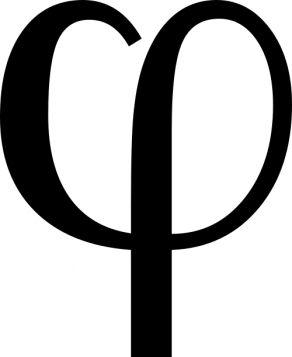This is the P2PU Archive. If you want the current site, go to www.p2pu.org!
DIY Math

DIY Math
Joe Corneli (Board Member at PlanetMath.org; Ph. D. student at the Knowledge Media Institute, The Open University, UK; http://metameso.org/~joe). I have a bachelor's degree in mathematics from New College of Florida (2002), and I did a couple years of math grad school before switching to a more "DIY" approach. My current Ph. D. project has to do with "Crowdsourcing a Personal Learning Environment for Mathematics", and this course can be considered to be an informal dry run.
Summary
This is a mathematics course open to all topics and levels (unless participants come up with a compelling reason to focus during the course). The main "pedagogical" reasons for such radical openness are:
(1) To give people one extra reason to take initiative in their own learning. One might say "I've always wanted to learn about P vs NP", another might say "I've always wanted to learn precalculus" -- both are overcoming a mental and emotional hurdle. I'm not suggesting that it's the *same* hurdle, but there are probably some similarities. In the same way that a writer's workshop can serve writers with different interests, this "DIY Math" workshop can serve mathematics learners with different interests by providing a place to talk about their challenges and successes.
(2) To help people develop skills at co- or peer-to-peer teaching. Ultimately people have to do their own homework exercises and so on, but one can also learn a lot in mathematics by helping others. My "teaching philosophy" is that there are no stupid questions, even if there are a lot of dumb answers. Let's see if we can get better at answering questions together.
There is no official text book, but participants may want to take a look at "How to solve it" (or other books) by George Polya. Participants will get access to a new "beta" grade libre software platform being developed to support mathematical communication; we'll also have a mailing list available as a fall-back mechanism (and if you're interested in the course, please sign up for the list now to talk about your ideas or questions).


Comments
I'm willing to learn, and
I'm willing to learn, and also conern over my learning style. I hope, at the end of this course I'll be more confident to assisit my son with his homework.
Hi Cheryl Ann, I am just
Hi Cheryl Ann,
I am just curious as to what level your son is studying at now, and which topics you are feeling least confident about among those you expect him to need help with this year.
-Alan
Hello Joe (Corneli),
Hello Joe (Corneli), unfortunately I can't follow your course in this round as I had hoped. It seems as if my other 2 courses (and my work) take more of my time than expected. I'd be happy to attend your math class in the next round (if there will be any, I hope so!). Karine
I apologize for not posting
I apologize for not posting sooner; I was in the hospital for eight days. I'm studying to be a facilitator for mathematics teaching. Specifically, I want to work to teach grade 4-7 teachers on how to teach mathematics to children. I'm also working on teaching my 2 year old nephew mathematics using a developmental Piagetian approach that encourages exploration rather than rigid structure.
I'm looking for a student to tutor in mathematics. Ideally, I'd like them to satisfy as many of these characteristics as possible: being an english language learner (ESL, or ebonics-speaking), being GLBT - Gay, Lesbian, Bisexual, Transgender, having a disability (dyscalculia, dyslexia, processing disorder, ADHD, etc), and/or being part of the leather or BDSM community.
So if anyone has a potential student, of any age, that fits some of those characteristics and could use help... pass them onto me. I do not tutor for pay-- work exchange, pro bono, or ithaca hours are all options ;-)
@Cheryl - I'd like to know
@Cheryl - I'd like to know what topics you feel the most comfortable teaching your son. Also, what are his favorite mathematics topics so you could use those to build what you teach on top of...